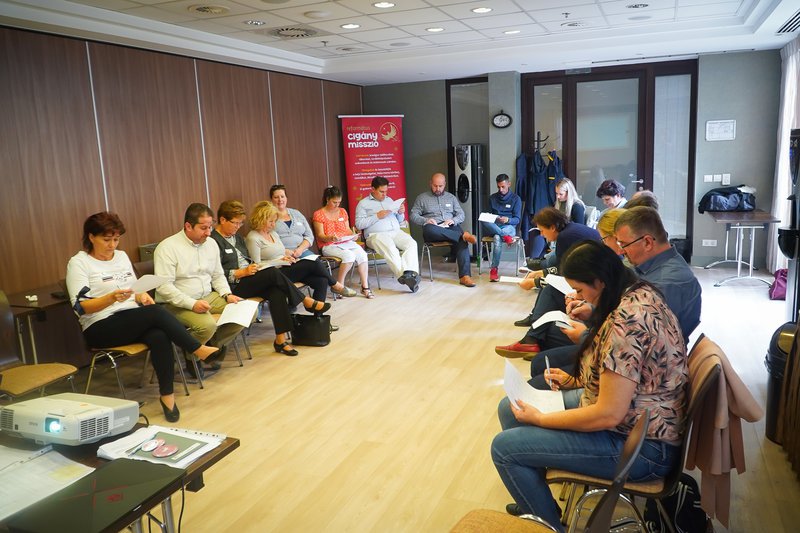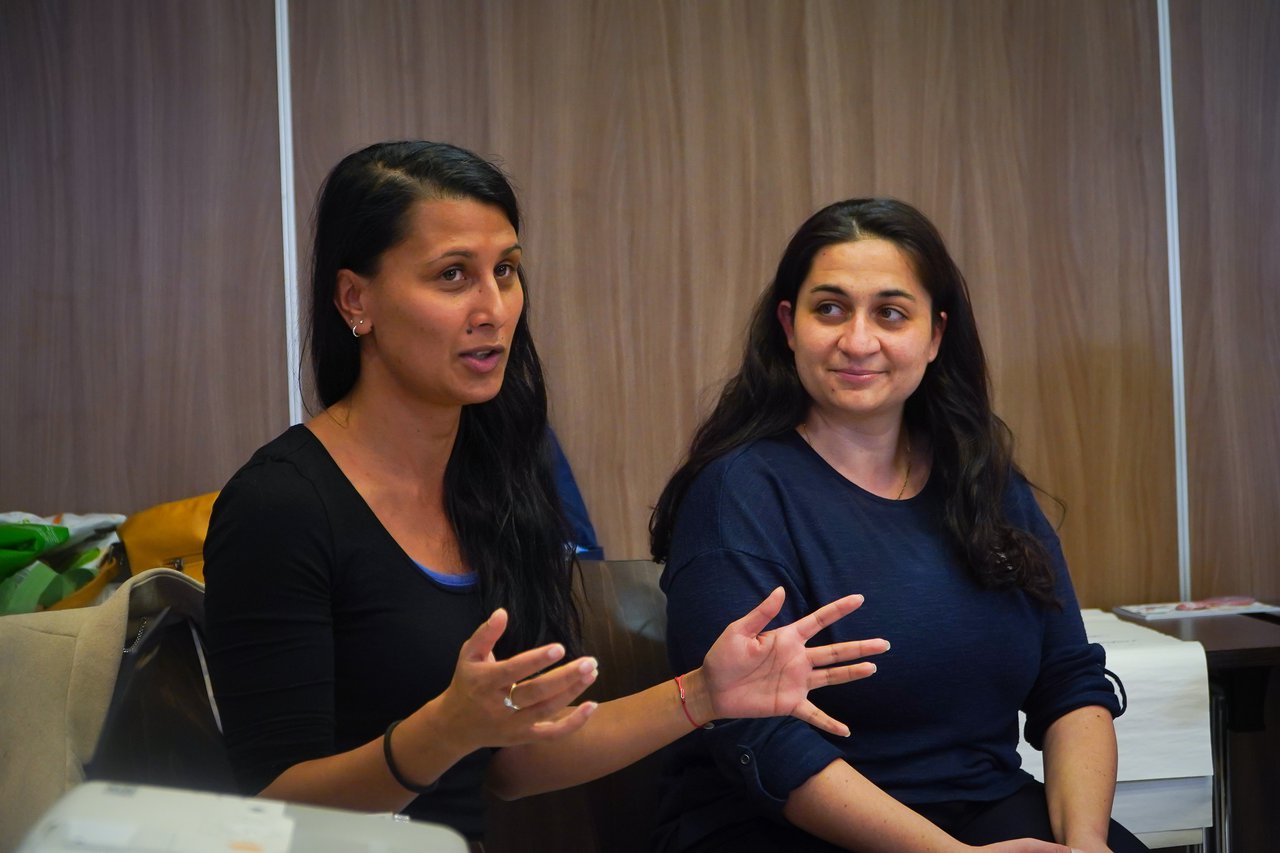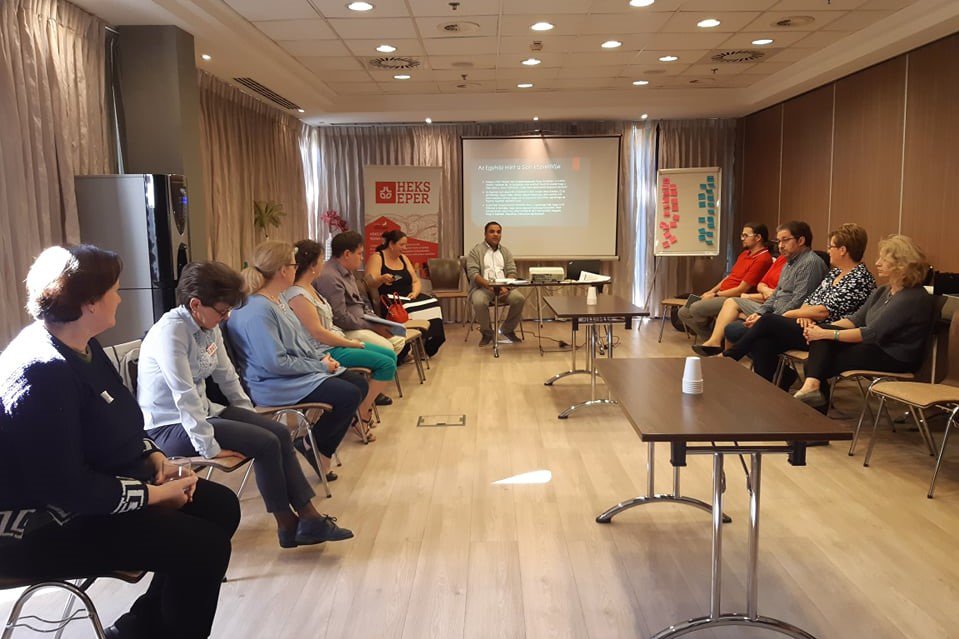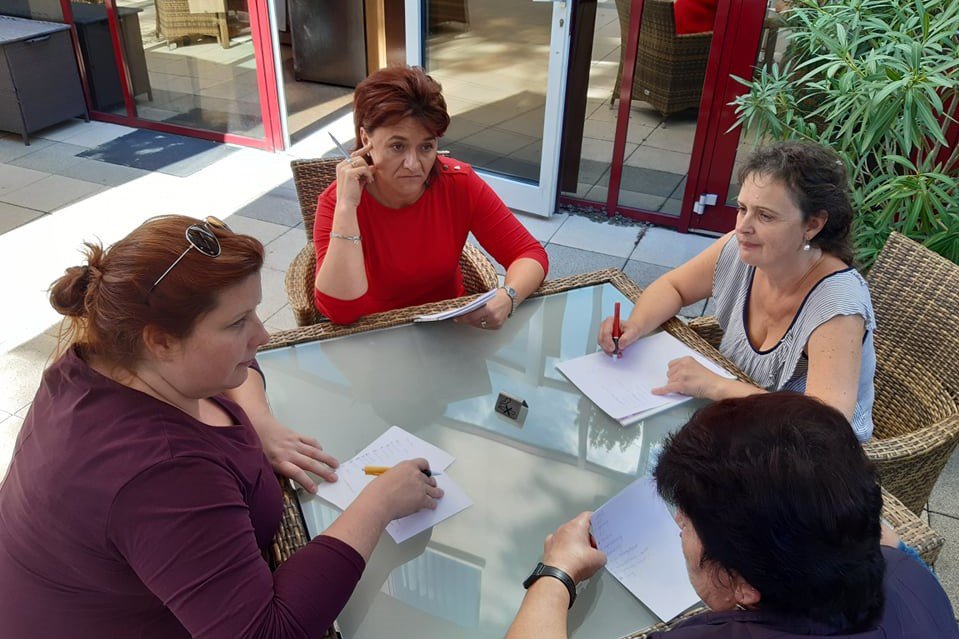Reformed pastors and community workers of congregations who implement Roma projects supported by the Swiss Church Aid (HEKS) exchanged their experiences at a two-day interactive workshop in Budapest on 24-25 September. The focus of the workshop was on sensitisation, broadening Romological knowledge and deepening the understanding of the relationship between Roma and Christianity.

“I dry up the green tree and make the dry tree flourish. I the Lord have spoken, and I will do it.” (Ez 17,24)
The two-day joint seminar of those serving in the Roma ministry across the country began with a devotion based on the bible passage of the day, offered by Dóra Hanula-Csordás, the Roma Mission coordinator of Transdanubian Church District (Pápa). In her reflection the pastor emphasized that working in the project is an opportunity for service, diaconia, which God offers for the local churches among the marginalized.
Among the pastors and coworkers gathered from all over the country there were some who are ‘old hands’ at implementing Roma mission program, but the majority of the participants were those who have started being involved in projects funded by HEKS over the past year and a half.

On Friday, the workshop was dedicated to Romology. “Getting to know the Roma community is essential in an inter-ethnic ministry - we started with an interactive introductory block on Romani studies, then we clarified and agreed on basic concepts of our ministry which are essential for our effective cooperation; such as inclusion, integration, segregation and exclusion,” said Andrea Ignácz, coordinator of the HEKS inclusion projects of the National Roma Ministry RCH.
“We also discussed the concepts of stereotype, prejudice and sensitisation, while moving towards the next goal of the workshop,” added the coordinator reflecting on the program elements led by Judit Ignácz, a staff member of the Uccu Roma Informal Education Foundation.
“The presentation helped us recognize that we need to be committed to accept the other person as he or she is, which requires openness on both sides,” reacted Károly Keresztyén, pastor of the Reformed congregation of the city of Újléta.
Uccu Roma Informal Educational Foundation is a Hungarian Roma civil society organization. The main mission of Uccu is to combat prejudices and negative stereotypes related to Roma, so we can all live in a more tolerant and open society. The lack of acceptance often derives from the lack of knowledge about other cultures and people.
In Hungary those who reflect anti-Gypsyist attitudes are typically those who know the least about the group they reject. Our Foundation provides an opportunity for primary and secondary school students from all over Hungary to meet and engage in a meaningful conversation with their young Roma peers.

The following day, Róbert Balogh, a Romani pastor of Váchartyán, and minister at the Roma Special College in Budapest, gave a lecture on the topic of Gypsies and Christianity, followed by an informal discussion. “Building on common foundations is important in order to have a shared vision for our common goal which is the peaceful coexistence of Roma and non-Roma, and to use our diverse tools and gifts in a focused way, adopting them to local needs”, added Andrea Ignácz.
After a discussion on mostly liturgical and eschatological topics, psychologist Amir Algharati introduced the participants to the psycholigical method of emotional and cognitive empathy. “Getting know the techniques of sensitization and empathy was a great experience for me. This way I can feel the difficulties of the people entrusted to us much better”, said Ms. Bárdos, director of the Morning Star Afterschool in Kecskemét.
Beside professional expertise, participants highlighted networking as the biggest positive aspect of the workshop. “The whole workshop helped to reinforce the importance of service among Roma people. I was enriched by the values represented and shared both by the trainers and by new and old acquaintances. All these impulses have given me a new impetus for ministry to my Roma brothers and sisters in my own congregation”, said Karolos Keresztyén.

“It is always a gift when God calls me to reevaluate my ministry, to revisit my attitude towards others, and I feel that this is what happened at this workshop,”
Jonathán Benjámin Bozsoky, pastor of the Reformed congregation in Kokad said.
Andrea Ignácz, host of the workshop emphasized that recognizing the situation of the Roma, understanding their difficulties, and addressing them in an adequate way is a prerequisite for solving a social problem. For this to happen people need to be sensitive to each other's problems, to accept and understand each other, so that they can effectively help each other. “The pastors and the staff member who participated in the project were introduced to tools which they can use in their own communities, in their kirk sessions and congregations, whether working with adults or children. They experienced different interactive sessions and learned methods they can use as tools in the future,” she said.
The participants will brainstorm about the way they can implement in practice what they have heard and learnt in the workshop during mentoring sessions, which will follow soon.

Translated by Bence András Szabó